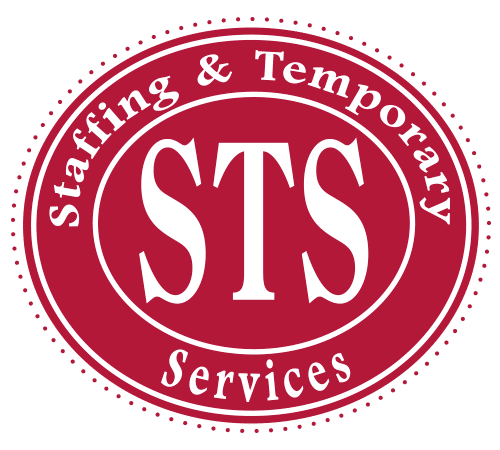Job hopping, the act of changing jobs frequently, has become a common phenomenon in today’s work landscape. With the rise of a gig economy and an increasing focus on personal growth and development, employees are no longer bound to one company for their entire careers. However, this trend also comes with its fair share of advantages and drawbacks. In this post, we will explore the pros and cons of job hopping, shedding light on the factors individuals should consider before deciding to switch organizations. By understanding both sides of the coin, professionals can make informed decisions about their career paths, ensuring they are aligning their goals and aspirations with their job choices. Whether you are contemplating a job change or simply curious about the effects of job hopping on one’s professional journey, this post will provide valuable insights into the topic. From an enhanced skill set and increased marketability to potential challenges in stability and reputation, we will dive deep into the different aspects of job hopping.
The Pros of Job Hopping:
1. Enhanced Skill Set and Marketability:
One of the major advantages of job hopping is the opportunity it provides to enhance your skill set and increase your marketability. When you switch jobs frequently, you are exposed to new challenges, industries, and work environments. This allows you to develop a diverse range of skills and experiences that can make you a valuable asset to future employers. For example, if you have worked in the customer service industry, switching to a job in manufacturing can expand your understanding of supply chain processes and improve your problem-solving abilities. Moreover, job hopping demonstrates adaptability and a willingness to learn, which are highly sought-after qualities in today’s dynamic job market.
2. Exposure to Different Industries and Cultures:
Another benefit of job hopping is the opportunity to gain exposure to different industries and cultures. Each organization has its own unique way of doing things, and by working for multiple companies, you can learn about different approaches, strategies, and perspectives. This exposure to diverse work environments can broaden your horizons and help you develop a well-rounded professional outlook. For example, if you have experience in the administrative field and decide to switch to the consumer goods industry, you will gain insights into the specific challenges and opportunities of that sector. This cross-industry knowledge can be a valuable asset in your career journey.
3. Rapid Career Progression and Salary Growth:
Job hopping can also lead to rapid career progression and increased salary growth. When you switch jobs, you have the opportunity to negotiate a higher salary and better benefits package. Employers often value candidates who have experience in multiple organizations, as they bring fresh perspectives and a wealth of knowledge. By strategically choosing your job moves, you can climb the career ladder at a faster pace and achieve your professional goals more quickly. For example, if you start your career in a retail position and then move to a management role in warehousing, you can demonstrate your ability to take on leadership responsibilities and oversee complex operations. This progression can open doors to higher-level positions and greater earning potential.
4. Greater Job Satisfaction and Work-Life Balance:
Job hopping can also lead to greater job satisfaction and improved work-life balance. By exploring different job opportunities, you have the freedom to find a company and role that aligns with your values, interests, and work preferences. For example, if you value work-life balance and want a job with flexible hours, you can search for organizations that prioritize employee well-being. With each job move, you have the chance to refine your career path and create a work-life balance that suits your needs. This increased job satisfaction can positively impact your overall well-being and happiness.
The Cons of Job Hopping:
1. Lack of Job Security and Stability:
One of the major drawbacks of job hopping is the lack of job security and stability. When you change jobs frequently, you may not have the same level of stability and long-term commitment that comes with staying in one organization for an extended period. Employers may view job hoppers as unreliable or disloyal, which can negatively impact future job prospects. Additionally, frequent job changes can create gaps in your employment history, making it more challenging to explain these transitions to potential employers. It is important to weigh the potential risks of job hopping against the benefits before making a decision.
2. Building a Reputation as a Job Hopper:
Another challenge of job hopping is the potential negative reputation it can create. While some industries may be more accepting of job hopping, others may view it as a lack of commitment or an inability to stay in one place. This can limit your opportunities and make it more difficult to secure employment in certain sectors. Building a solid professional reputation takes time and consistency, and frequent job changes can hinder that process. It is essential to consider the long-term impact on your reputation before deciding to switch organizations.
3. Limited Opportunities for Advancement within an Organization:
Job hopping may also limit your opportunities for advancement within an organization. When you switch jobs frequently, you may not have enough time to establish yourself, build relationships, and prove your abilities to the extent required for promotion. Employers often value loyalty and long-term commitment, and they may be more inclined to promote internal candidates who have demonstrated their dedication to the company. If you are looking for rapid advancement within an organization, job hopping may not be the most effective strategy.
4. Potential Loss of Retirement and Benefits:
Another consideration when job hopping is the potential loss of retirement and benefits. Many employers offer retirement plans, health insurance, and other benefits that become more valuable over time. When you switch jobs frequently, you may miss out on these long-term benefits and have to start over with each new employer. It is important to carefully evaluate the benefits package of each job opportunity and consider the long-term financial impact of job hopping.
Consider Both Sides
Job hopping has its advantages and drawbacks. It provides opportunities for skill enhancement, exposure to different industries, rapid career progression, and improved work-life balance. However, it also comes with challenges related to job security, building a reputation, limited opportunities for advancement, and potential loss of retirement and benefits. Understanding the pros and cons of job hopping is crucial for making informed decisions about one’s career path. By carefully weighing the benefits and drawbacks, professionals can navigate the job market and align their goals and aspirations with their job choices. It is essential to assess personal preferences, industry norms, and long-term career goals when considering job hopping. With the right strategies and mindset, professionals can effectively leverage job hopping to their advantage and create a fulfilling and successful professional journey.

